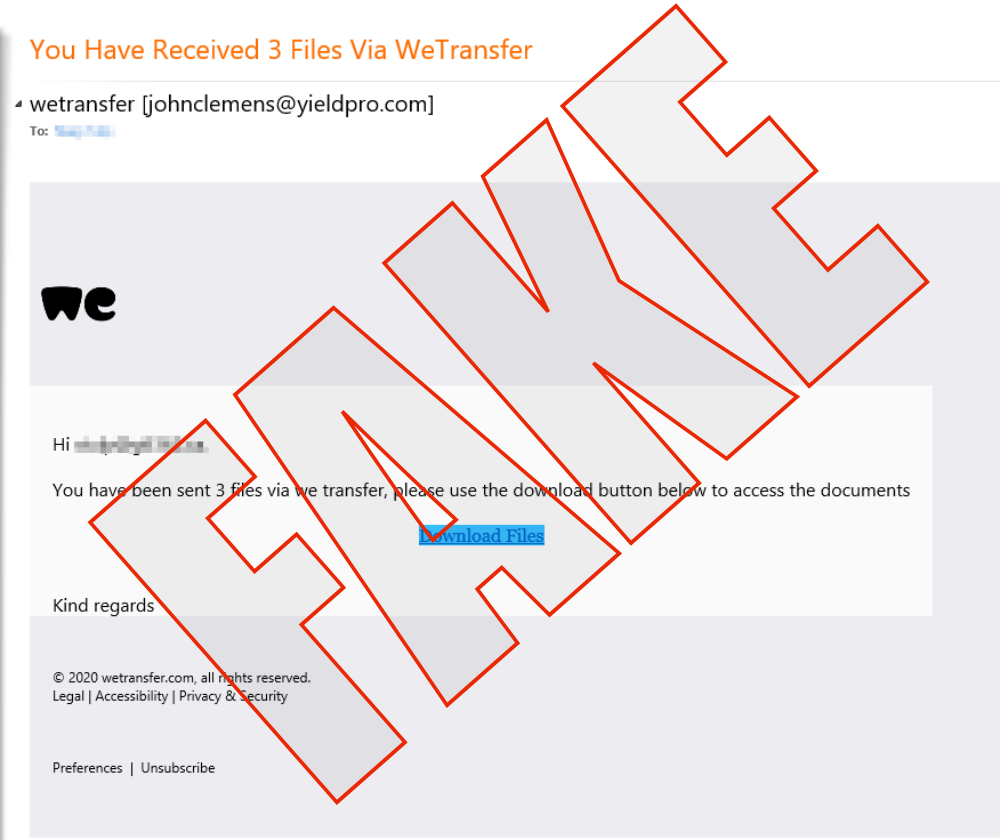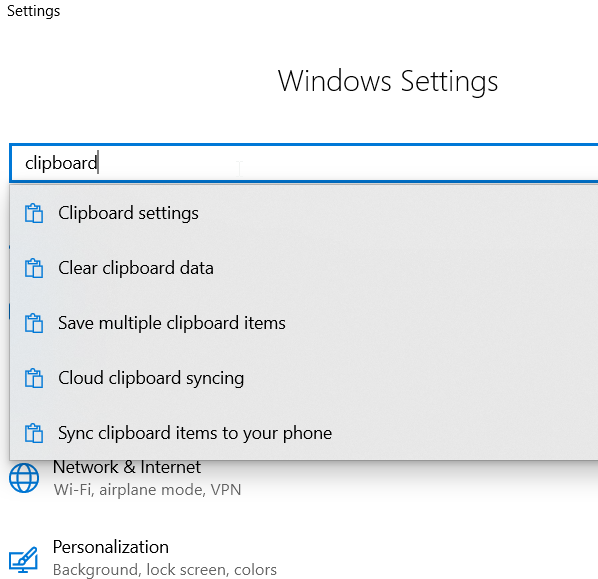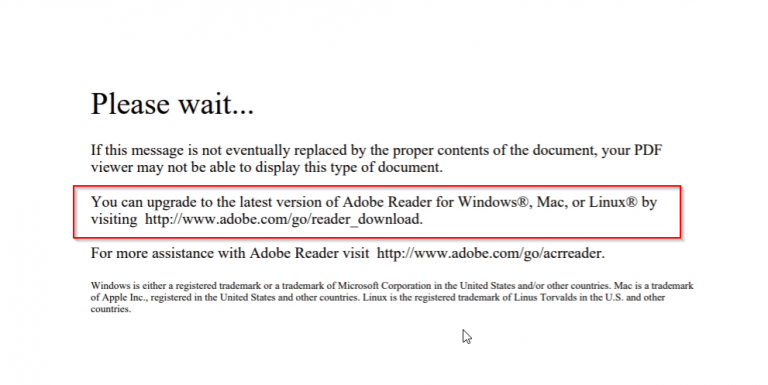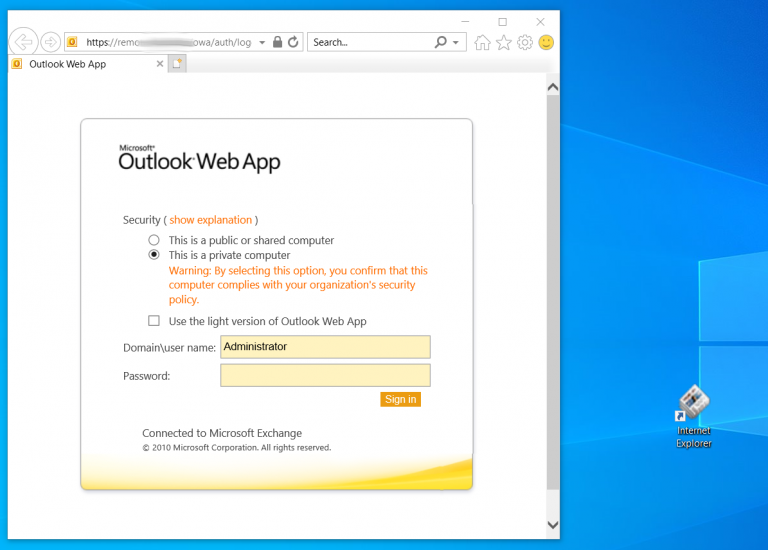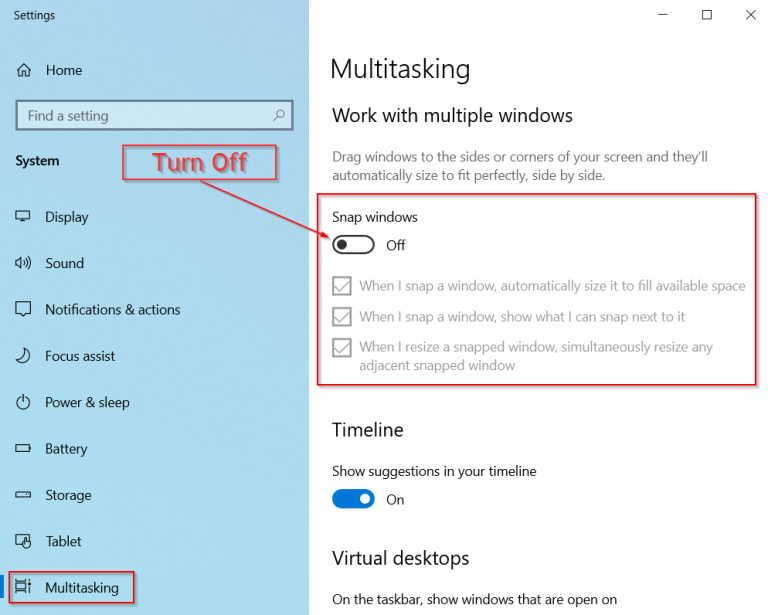Avoid Latest Email Scams
Don’t let the latest email scams fool you! There are many scam emails out there. At best they are a nuisance. At worst, they pose a real threat and seek to separate you from your money.
Invasive malware can hold your computer, data or organization hostage. Social engineering frauds can trick you into sending money to the bad guys – something that happened recently to the City of Prince George, as reported by the CBC.
For clients who are unsure about a particular email, please connect with Verix and we’ll help determine whether it’s legitimate or a nasty surprise. An email was referred to Verix recently – giving us the latest deception to watch out for: email claiming to use the WeTransfer service.
WeTransfer is a site and service that helps people move large files, making its money from advertising and a paid premium offering for files larger than 2 GB. For Bad actors, such service sites can be a way of sneaking malicious files past security. Below, a side by side comparison of a real email from WeTransfer is compared with the fake one. Move the slider to reveal more or less of either of the examples. There are some obvious differences (see if you can spot them – the real one is on the right). But, of course, if one never saw an actual WeTransfer email …
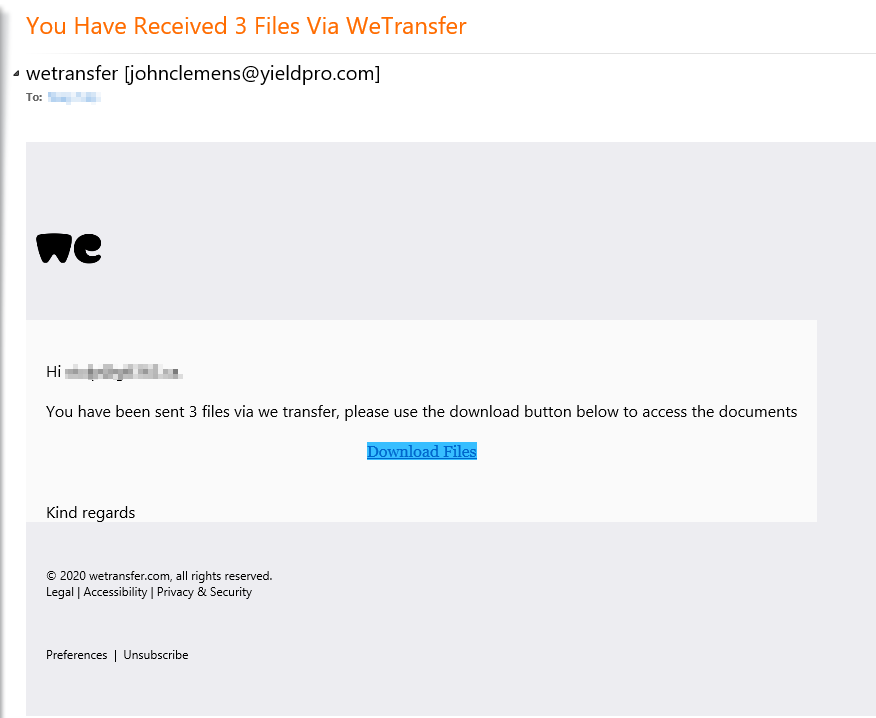
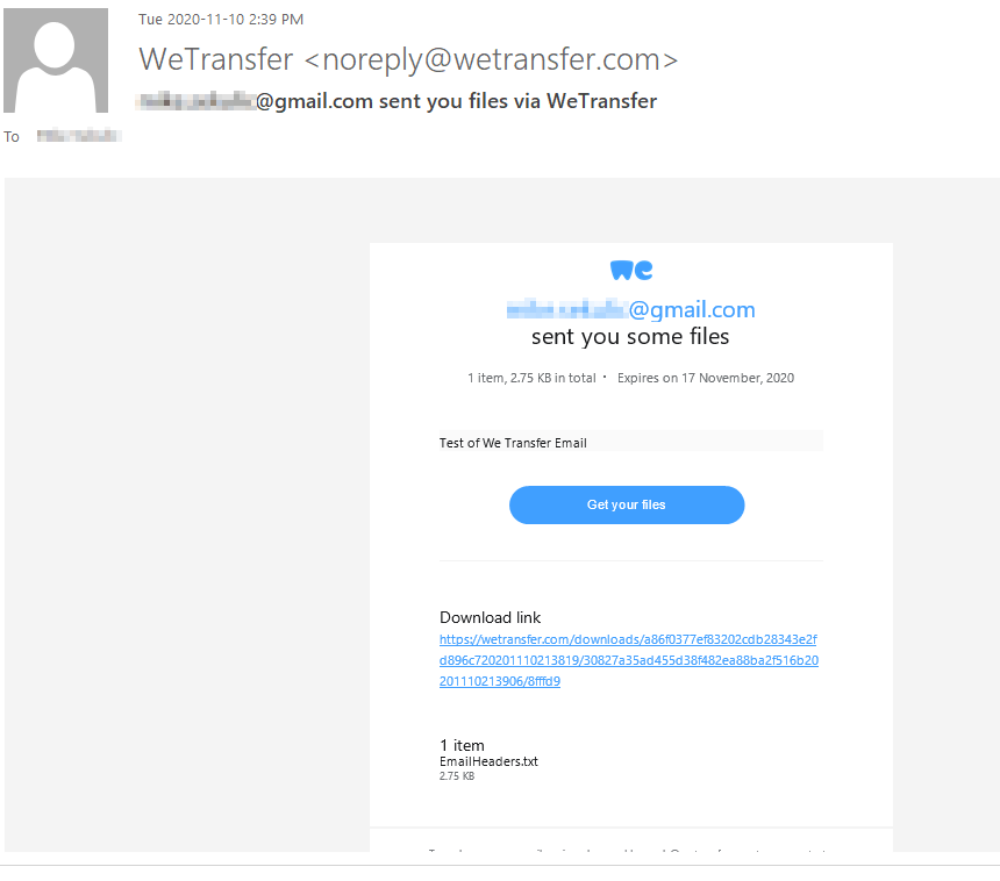
One obvious thing to watch for, are emails received from people you don’t know, and about things you don’t expect. Another thing is embedded links that don’t make sense when you ‘hover’ over them to reveal the web address. Many such emails come from non-English speaking countries. Awkward sentences as well as spelling mistakes are a reason for caution, though bad spelling and writing aren’t limited to international emails.
If you have any doubts, don’t click on links or open attachments in suspicious emails. A little caution can prevent a lot of pain and hassle.

